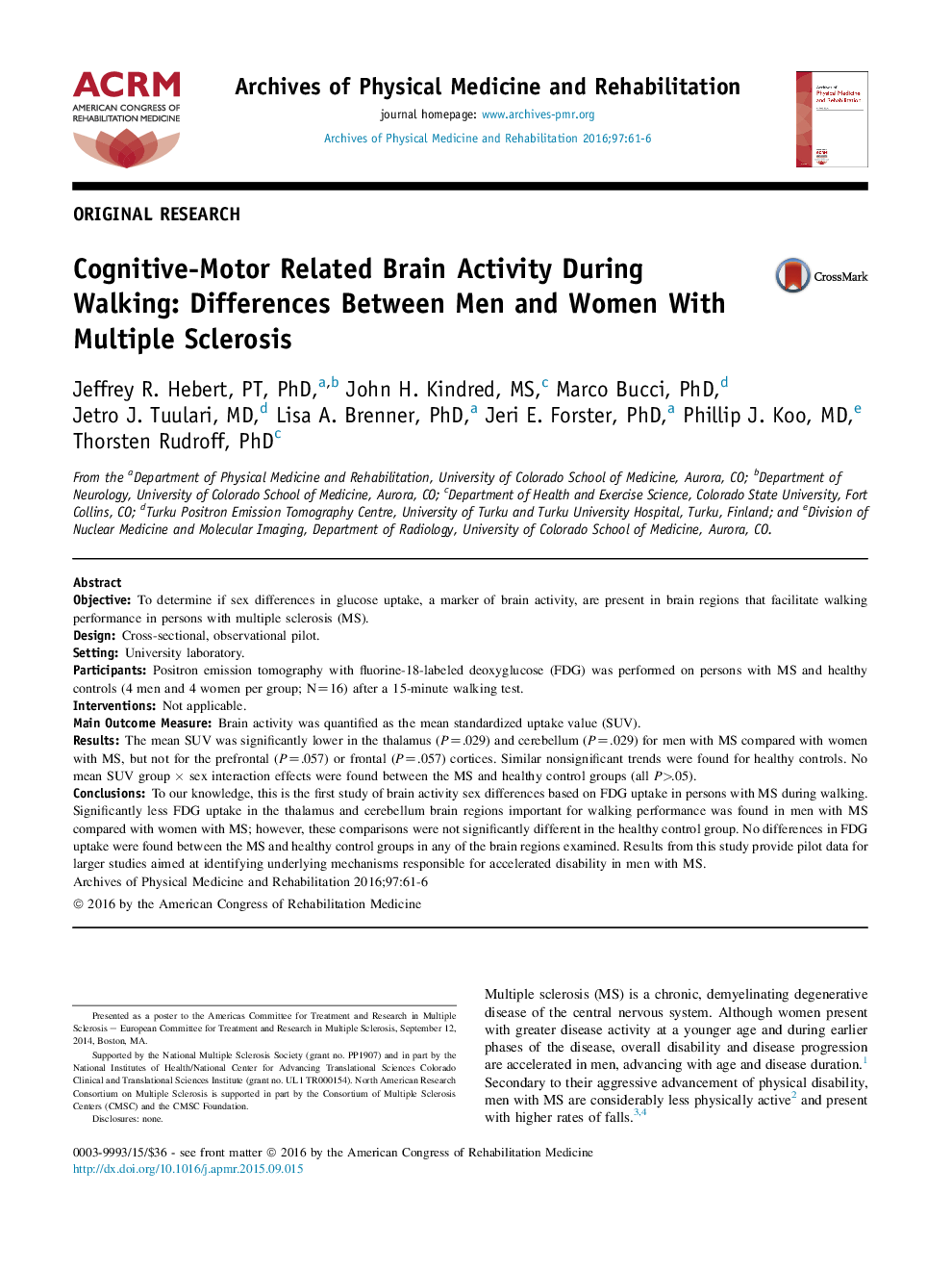| Article ID | Journal | Published Year | Pages | File Type |
|---|---|---|---|---|
| 3448017 | Archives of Physical Medicine and Rehabilitation | 2016 | 6 Pages |
Study Impact/Highlights•To our knowledge, this is the first study to show that mildly disabled men with multiple sclerosis have significantly less brain activity in the thalamus and cerebellum during walking compared with women with multiple sclerosis, which may be unique to this patient population.•The suggestion that men may possess inherent, preclinical vulnerability to the neuropathologic processes of multiple sclerosis is not supported by the actual results, but it deserves to be tested in a larger sample of healthy subjects.•This study provides the feasibility and utility of positron emission tomography with fluorine-18-labeled deoxyglucose aimed at detecting brain region glucose uptake and activity during a physical performance task.
ObjectiveTo determine if sex differences in glucose uptake, a marker of brain activity, are present in brain regions that facilitate walking performance in persons with multiple sclerosis (MS).DesignCross-sectional, observational pilot.SettingUniversity laboratory.ParticipantsPositron emission tomography with fluorine-18-labeled deoxyglucose (FDG) was performed on persons with MS and healthy controls (4 men and 4 women per group; N=16) after a 15-minute walking test.InterventionsNot applicable.Main Outcome MeasureBrain activity was quantified as the mean standardized uptake value (SUV).ResultsThe mean SUV was significantly lower in the thalamus (P=.029) and cerebellum (P=.029) for men with MS compared with women with MS, but not for the prefrontal (P=.057) or frontal (P=.057) cortices. Similar nonsignificant trends were found for healthy controls. No mean SUV group × sex interaction effects were found between the MS and healthy control groups (all P>.05).ConclusionsTo our knowledge, this is the first study of brain activity sex differences based on FDG uptake in persons with MS during walking. Significantly less FDG uptake in the thalamus and cerebellum brain regions important for walking performance was found in men with MS compared with women with MS; however, these comparisons were not significantly different in the healthy control group. No differences in FDG uptake were found between the MS and healthy control groups in any of the brain regions examined. Results from this study provide pilot data for larger studies aimed at identifying underlying mechanisms responsible for accelerated disability in men with MS.
